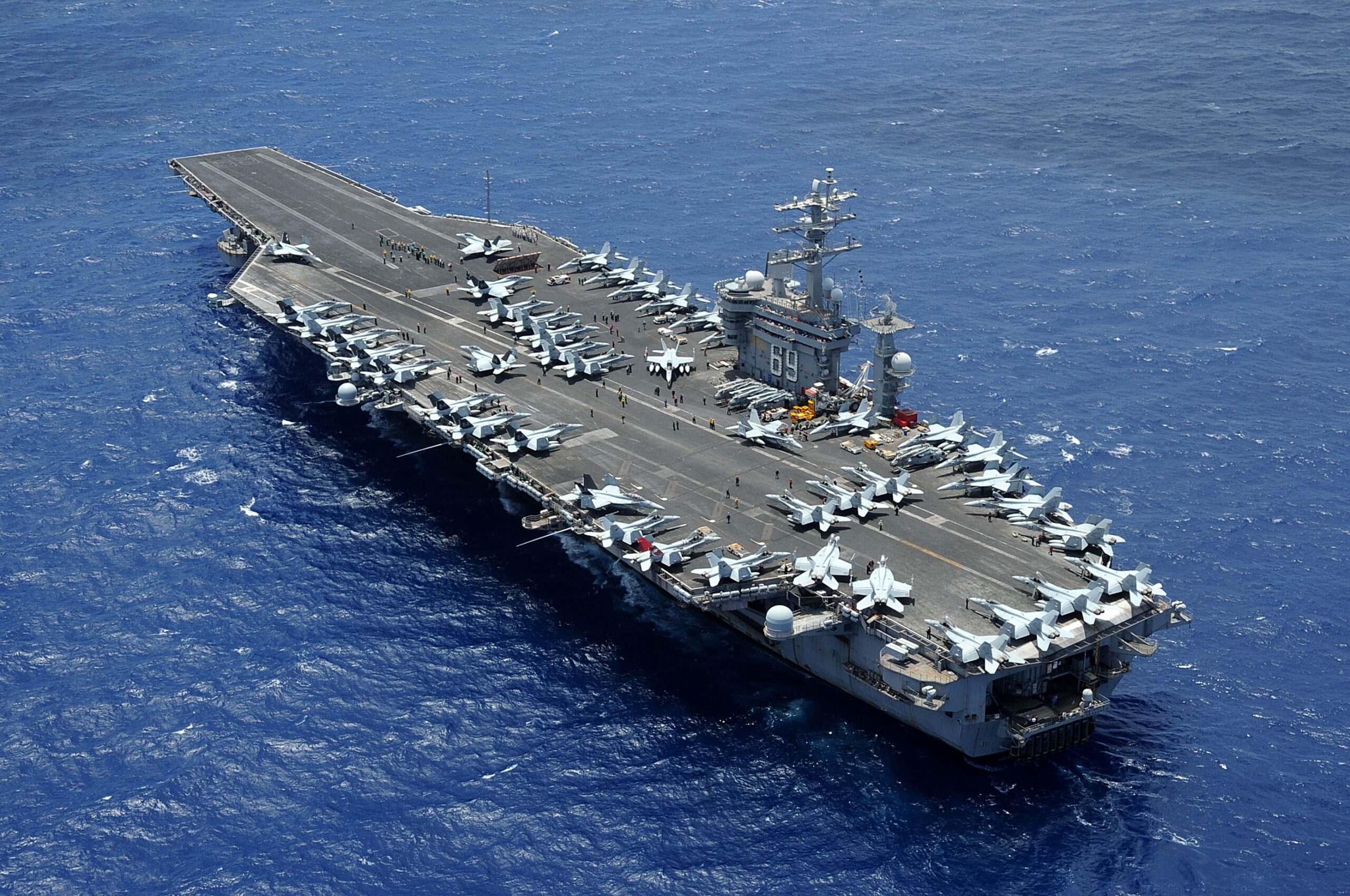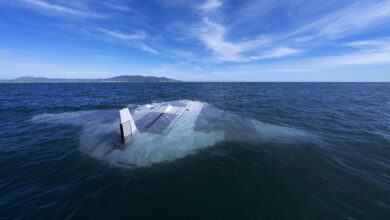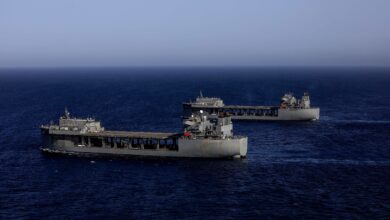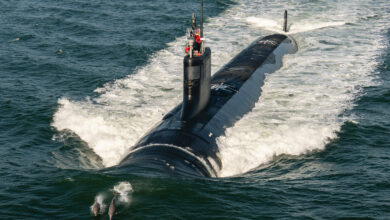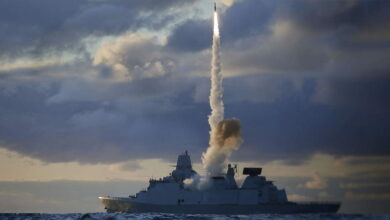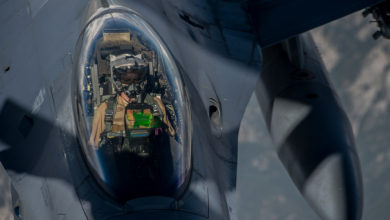The US Navy has integrated the first medical expeditionary capability aboard the Eisenhower Carrier Strike Group.
The En-Route Care System (ERCS) comprises one critical care specialist and a search and rescue medical technician.
These experts will work as an intensive care mobile unit while also sustaining skills and readiness within the USS Dwight D. Eisenhower (CVN 69) medical department.
“We are excited to expand the strike group’s medical response capabilities with the addition of ERCS,” Eisenhower Carrier Strike Group Senior Medical Officer Cmdr. Jason Condino stated.
“This allows us the ability to evacuate critically ill patients while maintaining full medical capabilities back on the ship. Implementation of this team aboard IKE aligns with long-term plans to meet fleet-wide requirements in support of distributed maritime operations.”
Constant Medical Services
According to the US Navy, the two-person team will be responsible for “uninterrupted medical attention” supporting one to two critically injured or ill patients.
Services will be provided for a maximum of eight hours from the point of injury through rehabilitation.
“We are here to provide care so that no matter where, if someone gets hurt, we have the ability to not only assist and treat and monitor them, but to also get them to the next level of care,” Navy Medicine Readiness and Training Command Critical Care Nurse Lt. Kyle Rowland explained.
“And we will be able to do that from the point of injury to where they need to go.”
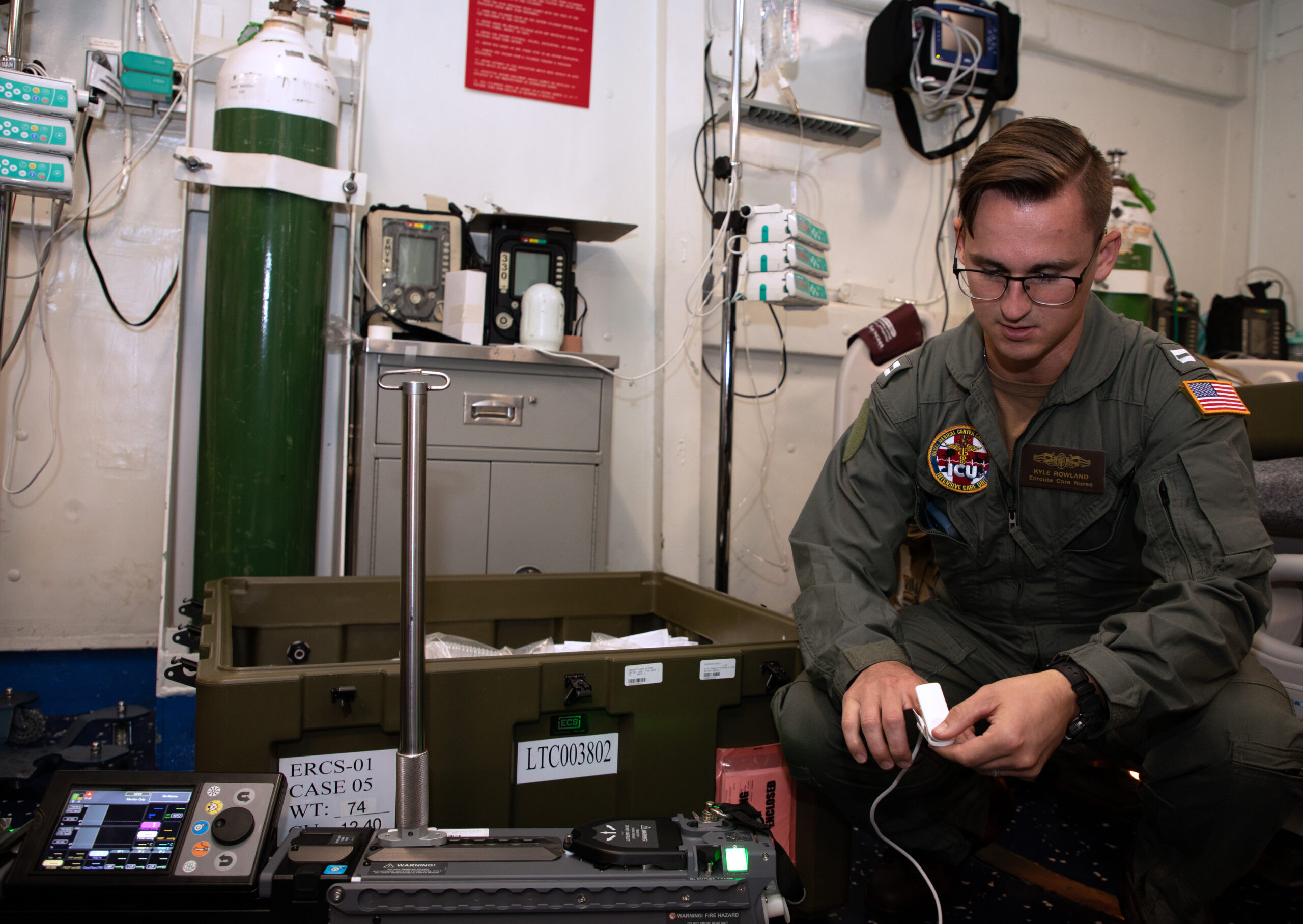
‘Patient Care in One Unit’
Additional operations the ERCS offers include ventilation support, supplemental oxygen and intravenous therapy, physiological monitoring, airway maintenance, resuscitation, hemorrhage control, and head and limb immobilization.
“The life support system that we have provides everything we need for patient care in one unit,” Search and Rescue Medical Technician Hospital Corpsman 2nd Class Bradley Christian said.
“We previously flew with separate units, but now this will help tremendously with being able to move patients more efficiently.”
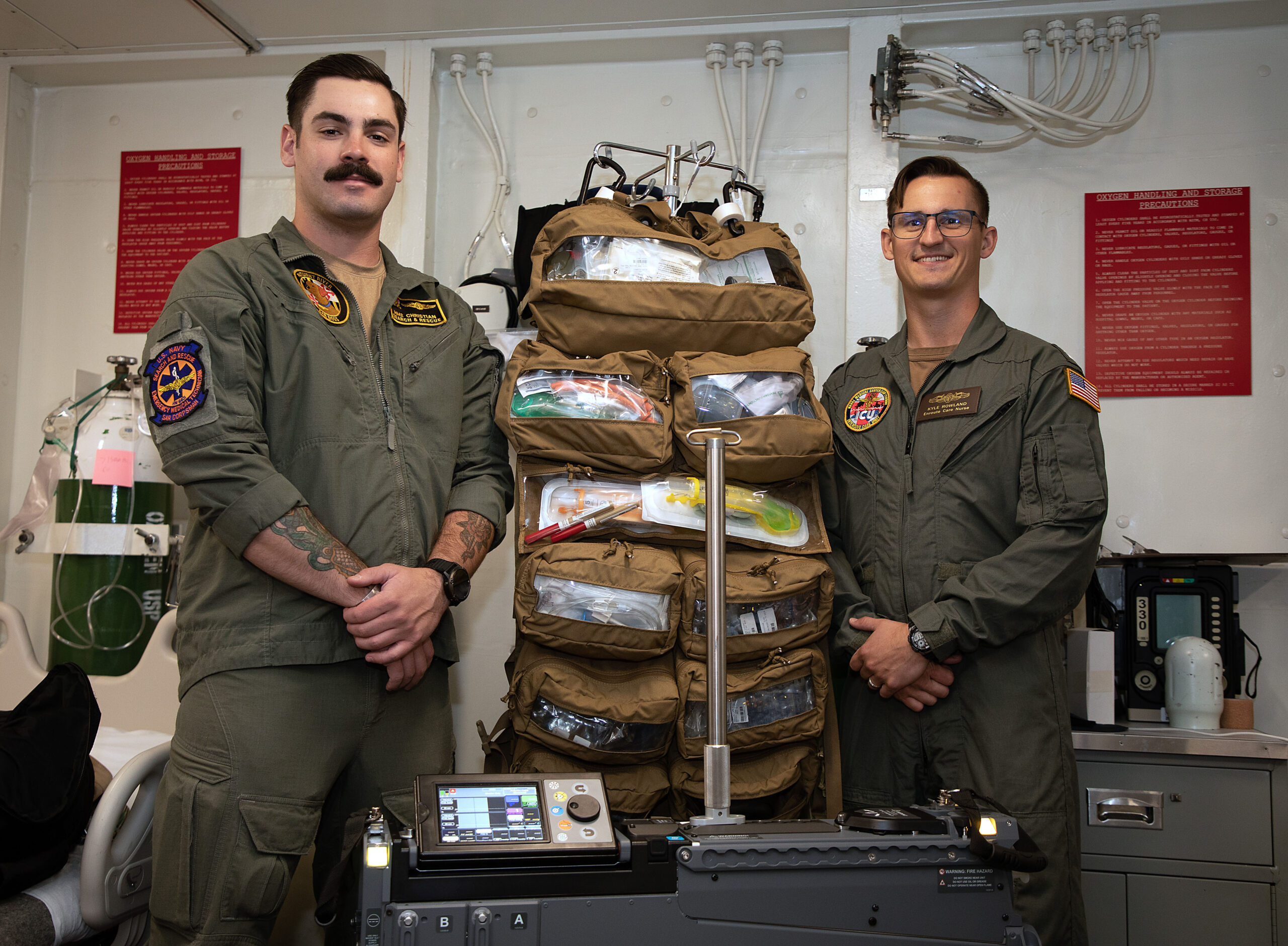
‘Essential’ Capability
Following its inception, the ERCS program is expected to maintain an effective combat medical force that boosts survivability by covering all possible care in any scenario.
“During future potential large scale combat operations, ERCSs are an essential casualty care capability, providing uninterrupted continuation of patient care during movement ashore and to higher capacity afloat medical assets,” Naval Medical Forces Atlantic Maritime Operations Director Capt. John Devlin stated.
“Their value in reducing battlefield morbidity and mortality will be even greater during distributed maritime operations given the tyranny of distance in potential area of operations.”

